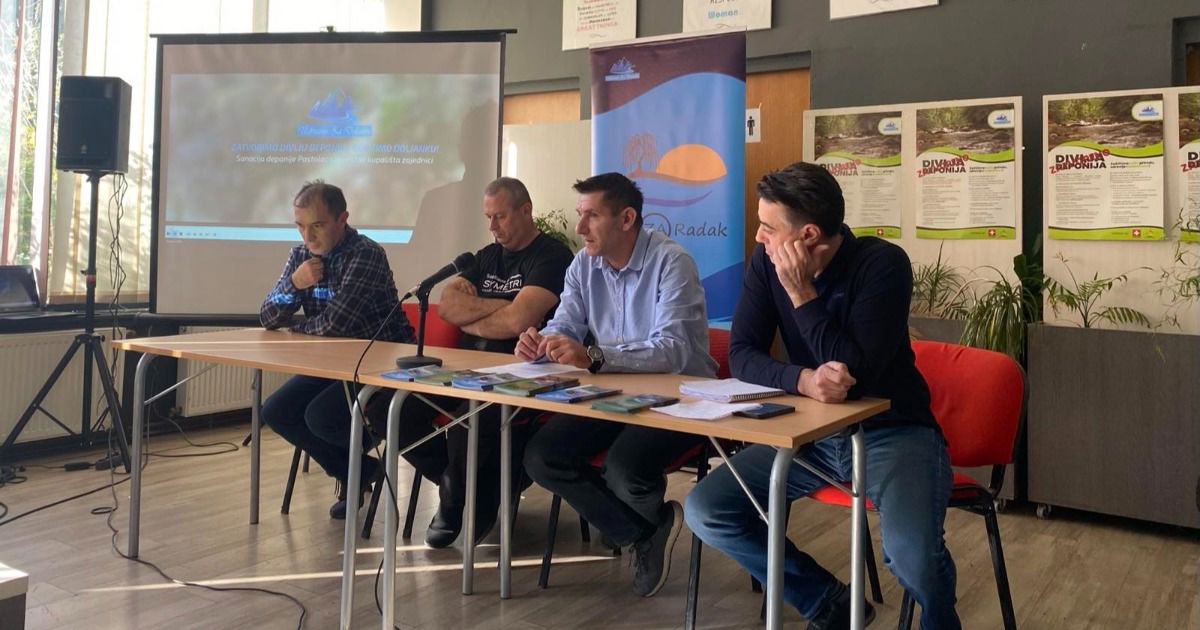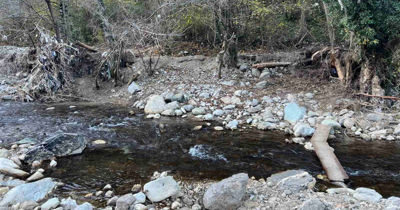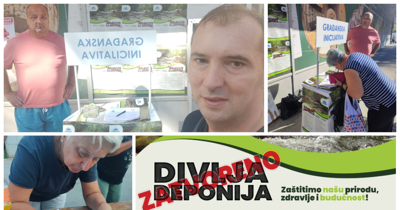
The citizens’ association Za Doljanku (“For Doljanka”), in cooperation with activists from Jablanica, held a final event today to present the results of a campaign focused on rehabilitating an illegal dumpsite in the Baćine settlement, which for years had polluted the environment and the Doljanka River.
Through the campaign Radi za Radak (“Work for Radak”), citizens and activists launched an initiative in late 2024 calling for an increase in funds for cleaning up illegal dumpsites and improving river beaches. Their proposal was accepted — the Jablanica Municipal Council approved 14,000 BAM for dumpsite rehabilitation and 20,000 BAM for beach improvements, explicitly including the Doljanka River area for the first time.
Following this success, at the beginning of 2025 the informal group Radi za Radak continued its efforts, focusing on rehabilitating the illegal dumpsite in Baćine, located near the popular Radak swimming area. The accumulated waste, plastic pollution, and damage to local flora and fauna after the October flash floods had created a serious ecological and health hazard for the entire community.
In response, residents self-organized and proposed concrete solutions — cleaning up the site and rehabilitating the dumpsite. Based on their initiative, the Jablanica Municipality, in cooperation with the local utility company, began the cleanup process. In the final phase, additional waste containers will be installed to prevent the re-emergence of illegal dumps and improve overall waste management in the area.
“The initiative we fought for has been accepted, and the Municipal Council has significantly increased the budget for 2025 to fund the rehabilitation of illegal dumpsites and beach maintenance. This is an important step forward — without financial support and necessary remediation, long-term solutions remain only wishes on paper.”
“The community has taken its part of the responsibility, and we now expect institutions to fully deliver on their commitments. Only through joint effort can we achieve lasting change. Our goal is not only to clean up Radak, but to change the way we treat waste and nature,” stated the Association.






